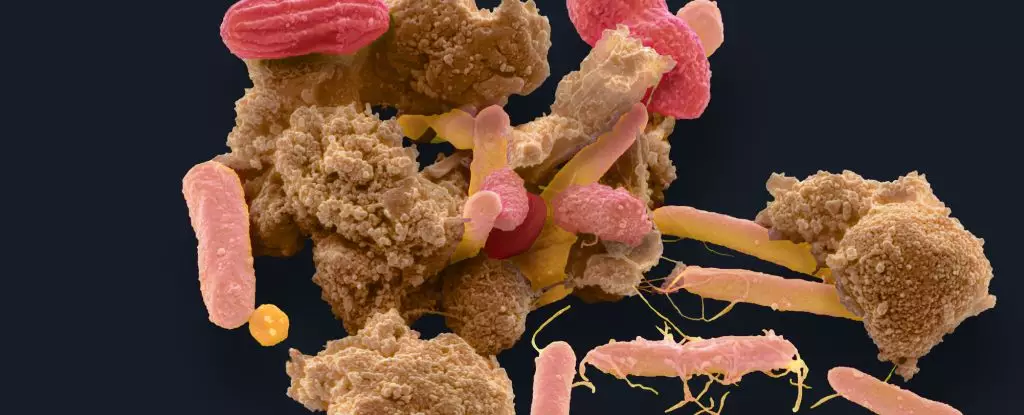In our modern rush for wellness, we often overlook the vital complexity of the human gut microbiome. A thriving gut is not merely a luxury; it’s a necessity for holistic health. Eubiosis reflects this ideal state of microbial balance, where myriad strains of friendly bacteria collaborate to perform essential functionalities, from digestion to immune defense. When this equilibrium is disrupted—whether by toxins, poor diet, or the overprescription of antibiotics—an array of health crises may ensue. The stakes are high: digestive discomfort can bloom into debilitating conditions like Crohn’s disease or ulcerative colitis. Alarmingly, emerging links between gut health and neurological or metabolic disorders are revealing a deeper truth. We are interconnected organisms, dependent on microscopic allies for our wellbeing.
The Intriguing Solution: Fecal Microbiota Transplantation
Amidst the tumult surrounding gut health, the innovative strategy of fecal microbiota transplantation (FMT) has gained traction. Envision a capsule—humorously dubbed “crapsule”—filled with fecal matter from a healthy individual, designed to reinvigorate a patient’s digestive landscape. The concept is compelling; the infusion of beneficial microbes could facilitate a renaissance in gut health, with FMT being heralded as a remedy for conditions like irritable bowel syndrome, obesity, and even Parkinson’s disease. However, the narrative is fraught with potential pitfalls, particularly as new research casts uncertainty on the efficacy of FMT protocols.
The Concern: Mismatches and Their Implications
A recent study published in the journal Cell raises a red flag regarding the effectiveness of FMT. Researchers have identified the phenomenon termed “mismatch,” borrowed from the world of organ transplants, where a donor’s profile does not align with that of the recipient. It turns out that the delicate terrain of the gut is as unique as a fingerprint; the microbial environment of one individual may not harmonize with another’s. Tests conducted on mice presented a startling revelation: when donor microbes were introduced following antibiotic-induced disruptions, mismatches often ensued. This misalignment caused certain beneficial bacteria to settle in regions of the gut where they were ill-equipped to perform optimally, adversely affecting metabolic and immune responses.
What is particularly alarming is the lack of clarity on the long-term outcomes of such misalignments. While the study did not specify the health complications that might arise, the alterations in gene expressions linked to metabolism raised eyebrows among researchers and medical professionals alike. The warning is loud and clear: without meticulous attention to the specifics of FMT—doses, timing, and compatible microbiota—the procedure could backfire spectacularly.
Innovative Solutions: The Omni Microbial Approach
Emerging from the shadows of uncertainty, a beacon of hope has appeared in the form of the omni microbial approach. This progressive strategy involves the transfer of microbes from various sections of the intestine, not just the colon, aiming to create a more cohesive and functional microbial environment. By adopting this inclusive methodology, the goal is to mitigate the regional mismatches previously documented, allowing for a truly holistic restoration of gut health.
Furthermore, the burgeoning concept of “terraforming” the gut promises tantalizing possibilities. This refers to the targeted repopulation of specific gut regions with carefully curated strains of microbes, each chosen for their potential to restore balance and function. Such tailored approaches signal a shift in how we might navigate the complex relationship between our gut health and overall wellbeing.
The Future of Gut Health: Cautious Optimism
The dialogue surrounding FMT is both exciting and rife with ethical implications. As we continue to explore the marvels of gut health, we must tread carefully, balancing ambition with caution. With advancements in research and treatment protocols, there is a palpable sense of potential for resolving ailments that have long plagued humanity. A strong emphasis on personalized medicine could herald a new era of gut-based treatments, one that prioritizes safety while harnessing the power of microbial diversity. We stand at the precipice of a revolutionary understanding, recognizing our symbiotic relationship with the minuscule entities that inhabit our bodies. As we venture further into this unexplored territory, the prospects remain bright, inviting cautious optimism in our quest for enhanced health.


Leave a Reply